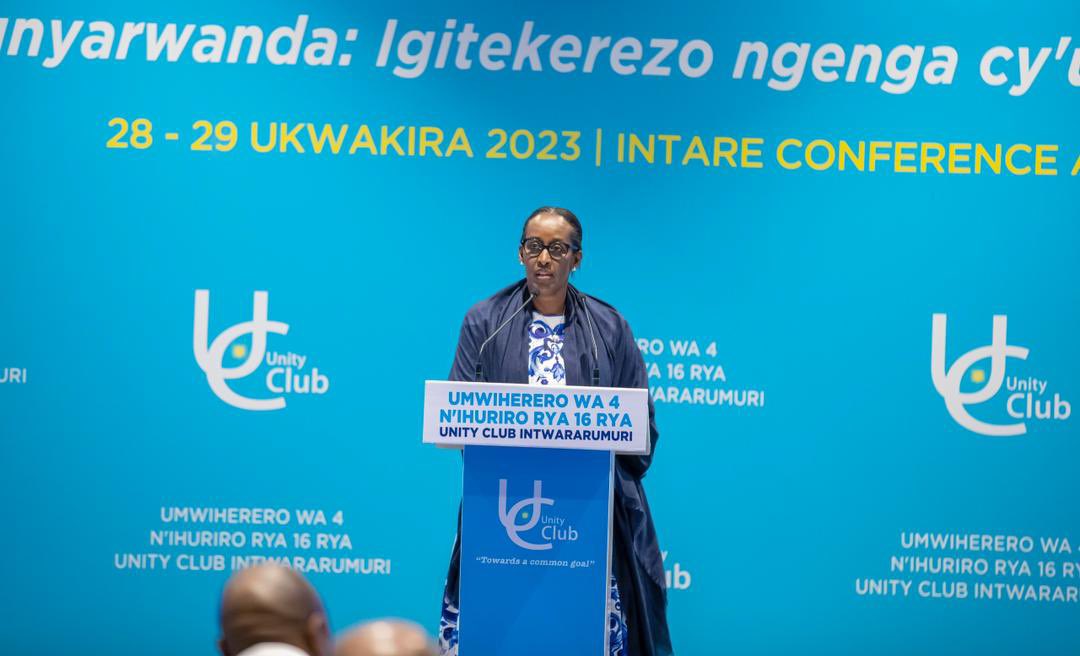In 1996, Rwanda’s First Lady Jeannette Kagame brought together Cabinet members and their spouses to establish Unity Club Intwararumuri, which translates to “Torch bearer”.
Their goal was to promote cohesion among themselves and work together to enhance unity and peace.
Unity Club Intwararumuri is an example of one of the initiatives contributing to building unity among Rwandans in the same spirit as other home grown solutions such as Ndi Umunyarwanda, Ingando, Itorero ry’Igihugu, Abunzi, Gacaca, Girinka and Umuganda.
Its inception marked a significant step towards fostering unity and peace in a nation that had been ravaged by division, serving as a beacon of social cohesion and inspiring citizens to follow suit.
Unity and reconciliation among Rwandans had reached at 95 per cent in 2021 after the 1994 Genocide against the Tutsi.
The importance of political leaders in shaping the destiny of their communities cannot be overstated. In Rwanda’s case, leadership plays a pivotal role in transitioning the nation from division to unity, from chaos to order.
Social cohesion among Rwandans was destroyed by bad leadership which promoted divisionism. With Unity Club, Rwanda’s leadership is brought together for a common purpose of fostering unity not only among leaders but also among the Rwandan society.
Rwanda’s leadership laid the groundwork for the policies and actions that would reconcile, stabilize, and elevate Rwanda to socio-economic viability. Remarkable strides in social cohesion, stability, and socio-economic and political transformation have been achieved.
Unity Club enhanced unity and peace as the foundation for sustainable development in Rwanda. It has been instrumental in instilling the process of contributing to the restoration of the national identity, introducing a Unity Award to recognize exemplary achievements, and advocating for widows and widowers, especially those who lost their families during the 1994 Genocide.
Supported by responsible government institutions, Unity Club provided material, moral and emotional support to vulnerable children. Following the Rwandan government policy to phase out orphanages, it supported the community to cater for children in their families. Children who had grown up in orphanages were given their own homes and facilitated to be self-reliant adults.
Unity Club put in place a program for caring for widows and widowers of the 1994 Genocide through provision of shelter, health care and other forms of social assistance, so that they live in dignity and grace.
It created a Unity Award to preservers of the pact of unity known as Abarinzi b’Igihango to recognize their exemplary achievements in promoting unity. These individuals are living testimonies of the power of unity in changing their lives and the lives of their neighbors for better.
Unity Club engaged different women networks at national level with aim of mentoring and empowering women in leadership. To strengthen the “Rwandan spirit” among youth, Unity Club started dialogue in higher learning institutions aimed at setting up a forum for exchange of ideas.










